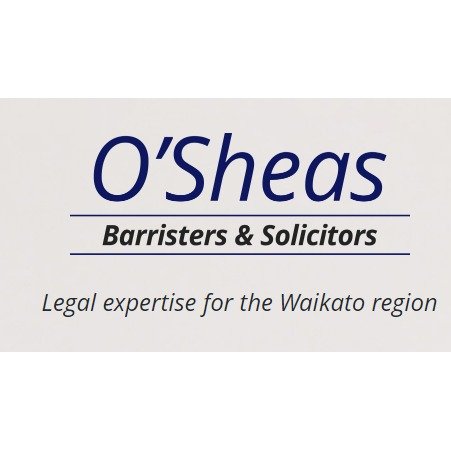Best Native People Lawyers in New Zealand
Share your needs with us, get contacted by law firms.
Free. Takes 2 min.
Or refine your search by selecting a city:
List of the best lawyers in New Zealand
About Native People Law in New Zealand
The Maori are the indigenous people of New Zealand, with a rich history and cultural presence in the country. Their rights and relationship with the land and government are defined and protected under a framework of laws collectively known as Native People or Maori law. Key historical documents like the Treaty of Waitangi, signed in 1840, play a crucial role in shaping these legal structures. The Treaty established a partnership between Maori and the British Crown, guiding modern legal interpretations and government practices towards Maori land claims, rights, and resources.
Why You May Need a Lawyer
Legal expertise may be necessary in a variety of situations pertaining to Native People law. These can include disputes over land ownership or access, breaches of the Treaty of Waitangi involving governmental or private parties, resource management issues affecting Maori land, cultural or intellectual property rights, or any legal rights issues specific to Maori individuals or communities. A lawyer specializing in Maori law can provide guidance on how to navigate these complex legal matters effectively.
Local Laws Overview
Key local laws affecting Native People in New Zealand include the Treaty of Waitangi and various statutes enacted to implement its principles. Additional legislation such as the Resource Management Act, the Maori Land Act, and legal frameworks governing fisheries, forest management, and water rights are particularly relevant. These laws strive to balance development with the conservation of Maori culture and resources and often involve complex consultations and consent processes with Maori communities.
Frequently Asked Questions
Who are the Tangata Whenua?
Tangata Whenua refers to the Maori people, the indigenous inhabitants of New Zealand who are the traditional custodians of the land.
What is the significance of the Treaty of Waitangi?
The Treaty of Waitangi is a foundational document signed in 1840, establishing the relationship between Maori and the British Crown. It is central to Maori land rights and contemporary legal claims.
What are Waitangi Tribunal claims?
The Waitangi Tribunal is a commission tasked with investigating breaches of the Treaty by the government or other parties and recommending redress or settlements.
What rights do Maori have over natural resources?
Maori have recognized rights and interests in many natural resources, which can be complex to navigate legally. These include rights to land, fisheries, and forests, typically adjudicated through legislation and court decisions.
How does Maori land ownership work?
Maori land is often collectively owned and managed under the Te Ture Whenua Maori Act. This law governs the use, succession, and administration of Maori lands to preserve their cultural and economic significance.
What is Maori customary law?
Maori customary law, recognized in various forms, includes traditional practices and cultural norms. It often guides decisions in community matters and is acknowledged within New Zealand's broader legal system.
What is the process for resolving disputes around Maori land?
Disputes are typically resolved through negotiation, mediation, or adjudication by the Maori Land Court or other relevant judicial bodies, following traditional and statutory guidelines.
What are the Maori cultural property rights?
These rights protect Maori cultural and intellectual property, including traditional knowledge, symbols, and artifacts, from commercial exploitation without consent.
How can one engage with Maori communities on legal issues?
Engagement should be respectful and empathetic, observing cultural protocols. Consultation should be conducted early and fairly, with transparency and fairness.
What legal protections exist for Maori cultural interests?
Various laws protect Maori cultural interests, ensuring that their cultural heritage and identity are legally recognized and safeguarded in New Zealand's legal and civic frameworks.
Additional Resources
For those seeking legal advice or more information on Native People in New Zealand, consider reaching out to the following resources:
- The Waitangi Tribunal
- Te Puni Kōkiri (Ministry of Maori Development)
- The Maori Land Court
- New Zealand Law Society's Maori Special Interest Section
- The University of Auckland School of Law
- Community Law Centres offering free legal advice
Next Steps
If you require legal assistance concerning Native People in New Zealand, begin by identifying your specific legal issue. Consider consulting a lawyer specializing in Maori law, as their expertise will be critical in navigating these unique legal avenues. Prepare relevant documentation and background information for your initial consultation. It's also advisable to engage with Maori community leaders and organizations for guidance and support as you proceed with legal pursuits.
Lawzana helps you find the best lawyers and law firms in New Zealand through a curated and pre-screened list of qualified legal professionals. Our platform offers rankings and detailed profiles of attorneys and law firms, allowing you to compare based on practice areas, including Native People, experience, and client feedback.
Each profile includes a description of the firm's areas of practice, client reviews, team members and partners, year of establishment, spoken languages, office locations, contact information, social media presence, and any published articles or resources. Most firms on our platform speak English and are experienced in both local and international legal matters.
Get a quote from top-rated law firms in New Zealand — quickly, securely, and without unnecessary hassle.
Disclaimer:
The information provided on this page is for general informational purposes only and does not constitute legal advice. While we strive to ensure the accuracy and relevance of the content, legal information may change over time, and interpretations of the law can vary. You should always consult with a qualified legal professional for advice specific to your situation.
We disclaim all liability for actions taken or not taken based on the content of this page. If you believe any information is incorrect or outdated, please contact us, and we will review and update it where appropriate.
Browse native people law firms by city in New Zealand
Refine your search by selecting a city.












